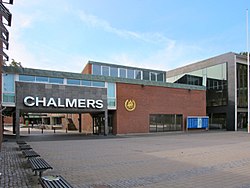Do you want to perform basic research on materials for next-generation energy technologies, using the latest methods at international large-scale photon and neutron sources, and develop further into a skilled researcher with attractive career opportunities? Then you should apply for this exciting postdoc position.
Project description
Hybrid organic-inorganic perovskites (HOIPs) exhibit light absorbing and emitting properties, due to electronic excitations, and have attracted enormous attention in the last decade, mostly due to their easy fabrication and huge promise for use in solar cells and light emitting diodes. However, a low stability towards heat and moisture are a big hindrance for using these materials in practical devices. The search for more robust HOIPs has recently shifted the focus to lower dimensional systems, but the underlying mechanisms of the electronic excitations remain unclear.
The aim of this postdoc project is to provide crucial contributions to this important problem by unlocking new fundamental understanding of the coupling between local structure, dynamics and luminescence. Special emphasis is laid on the investigation of local structural properties, using a combination of steady-state structural probes as well as time-resolved spectroscopy and diffraction. The work will be conducted in collaboration with other research groups, at Chalmers and in other countries. Specifically, the postdoc is expected to collaborate with PhD students already present in the group and that focus on neutron scattering studies of the dynamical nature of HOIPs. As part of the responsibilities, the postdoc may, apart from his/her own research, be as well collaborating with several researchers in neighboring subject areas.
The division and the research group
The postdoc will be part of the group of Prof. Maths Karlsson at the Division of Energy and Materials at the Department of Chemistry and Chemical Engineering. Our research, at the interface between physics and materials science, focuses on investigations of structure and dynamics of functional inorganic materials. The overall aim is to develop a deeper understanding of the coupling between materials' functional properties, such as ionic conductivity and luminescence, and their atomic-scale structure and dynamics. The primary tools to this end involve the use of large-scale photon and neutron sources around the world, as well as optical techniques at Chalmers. Most of the work is done in collaboration with several national as well as international research colleagues. For further information about our research group, please see our poster describing some of our research:
https://www.chalmers.se/SiteCollectionImages/Energi%20och%20%20material/Maths%20forskning3.png
Contract terms
Full-time temporary employment. The position is limited to a maximum of two years (1+1) with the possibility for extension.
Qualifications
To qualify for the position, you must have completed a PhD in Experimental Materials Science, Physics, or a related discipline, at the time of appointment. In practice, this means you already have a PhD or you will be finishing your PhD studies in the near future. The degree should generally not be older than three years.
We are looking for a person with experience from fundamental research on inorganic phosphors and/or hybrid organic-inorganic perovskites. Experience in standard optical techniques, such as photoluminescence spectroscopy and/or thermoluminescence spectroscopy is a must, while experience on time-resolved (pump and probe) techniques, and/or in the synthesis of novel inorganic or hybrid organic-inorganic phosphors is an asset.
To be successful, you need to be highly motivated, independent, and have high analytical, social, and communicational skills. Highest standards of research ethics are a must. Excellent knowledge of English, written and spoken, is also required. With this set, we offer unique opportunities for top notch basic research pertaining to technologically important materials and career development.
Chalmers continuously strives to be an attractive employer. Equality and diversity are substantial foundations in all activities at Chalmers.
Our offer to you
Chalmers offers a cultivating and inspiring working environment in the dynamic city of Gothenburg.
Read more about working at Chalmers and our benefits for employees.
Application procedure
The application should be marked with Ref 20210214 and written in English. The application should be sent electronically and be attached as pdf-files, as below:
CV: (Please name the document as: CV, Surname, Ref. number) including:
• CV, include complete list of publications
• Previous teaching and pedagogical experiences
• Two references that we can contact.
Personal letter: (Please name the document as: Personal letter, Family name, Ref. number)
1-3 pages where you:
• Introduce yourself
• Describe your previous research fields and main research results
• Describe your future goals and future research focus
Other documents:
• Attested copies of completed education, grades and other certificates.
Please use the button at the foot of the page to reach the application form. The files may be compressed (zipped).
Application deadline: 27 May, 2021
For questions, please contact:
Dr. Maths Karlsson, Energy and Materials
maths.karlsson@chalmers.se
*** Chalmers declines to consider all offers of further announcement publishing or other types of support for the recruiting process in connection with this position. ***
Chalmers University of Technology conducts research and education in engineering sciences, architecture, technology-related mathematical sciences, natural and nautical sciences, working in close collaboration with industry and society. The strategy for scientific excellence focuses on our six Areas of Advance; Energy, Health Engineering, Information and Communication Technology, Materials Science, Production and Transport. The aim is to make an active contribution to a sustainable future using the basic sciences as a foundation and innovation and entrepreneurship as the central driving forces. Chalmers has around 11,000 students and 3,000 employees. New knowledge and improved technology have characterised Chalmers since its foundation in 1829, completely in accordance with the will of William Chalmers and his motto: Avancez!



No comments:
Post a Comment